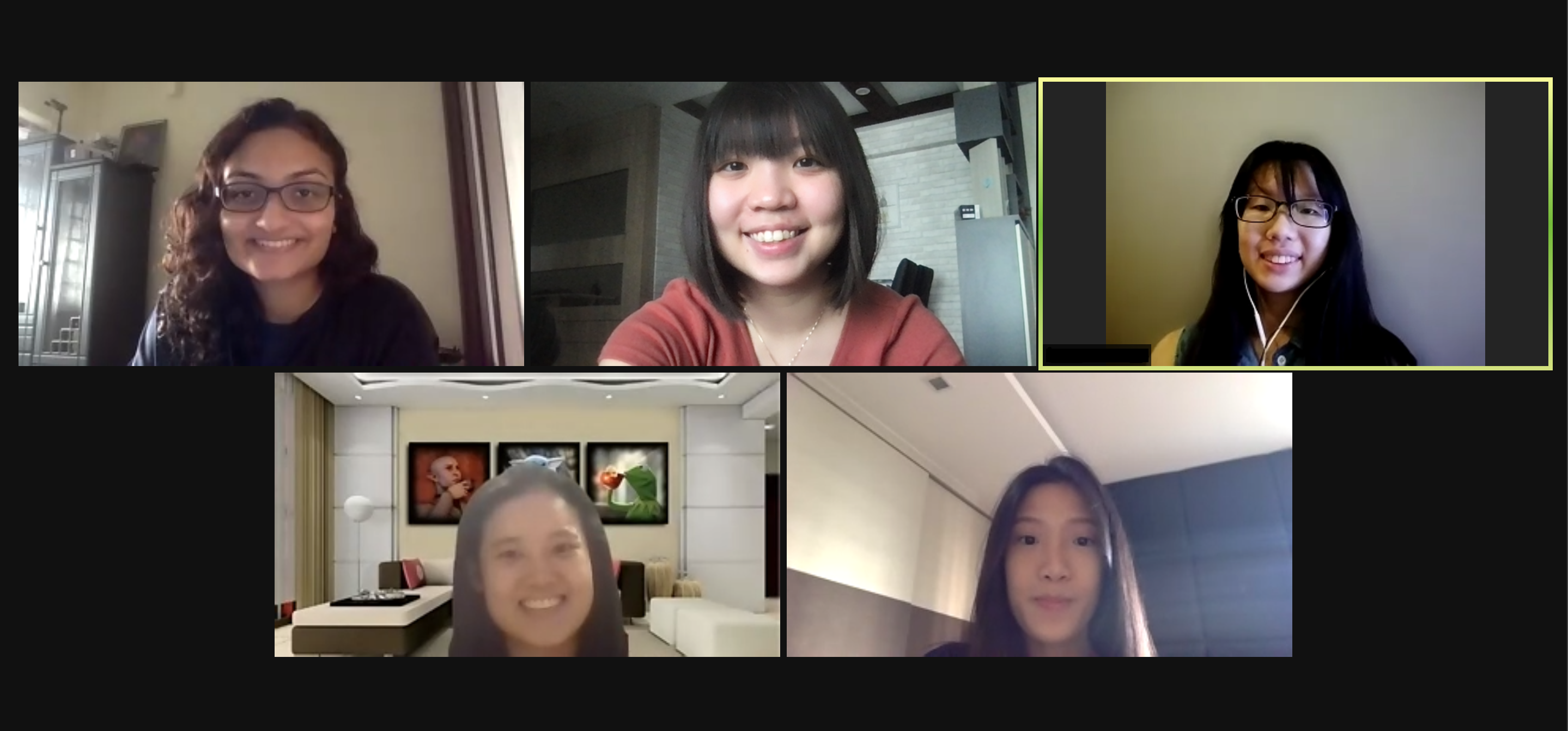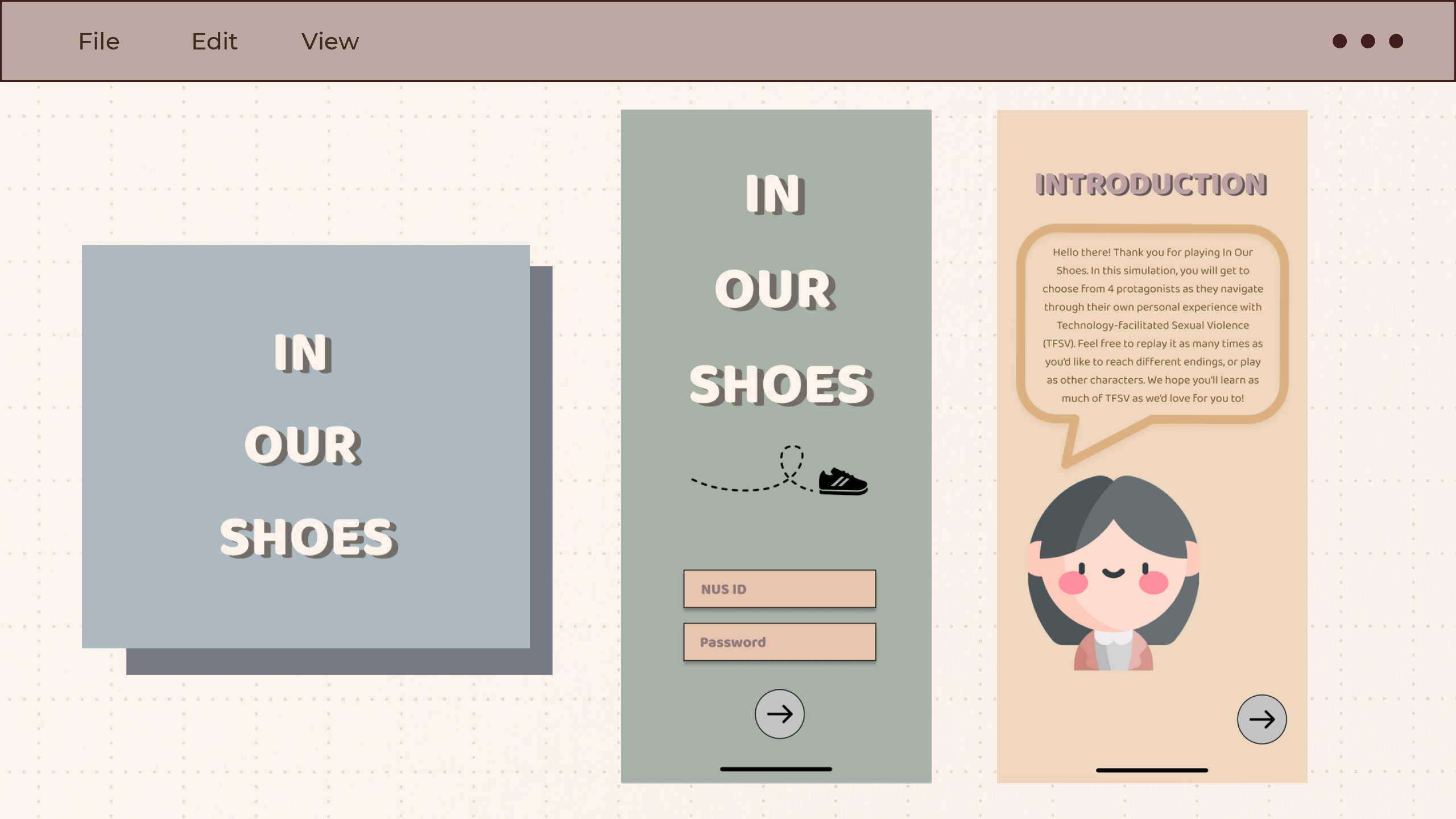SW4210: How Should We Approach Technology-Facilitated Sexual Violence (TFSV)?
10 Dec 2021 | Collaborations – Student Projects

In recent years, technology-facilitated sexual violence (TFSV) has risen to be one of the more prevalent forms of sexual misconduct in Singapore. With Singapore becoming an increasingly interconnected nation, this alarming yet unassuming rise in TFSV is one that needs to be promptly taken into consideration.
As part of the module SW4210: Social Work & Technology of the Future, students Boey Jaek Ngan, Choo Jing Lian Gloria, Gurpreet Kaur D/O Kulwant Singh, Liew Shi Ping and Ng Zi En, Beatrice chose the NUS Care Unit (NCU) as their partner organisation. The research project aimed to surface insights into the experiences and level of awareness of TFSV among NUS students and recommend a holistic and tailored solution based on data analysis and best practices.
Q: What made you choose the NUS Care Unit (NCU) as a partner for your project?
Shi Ping: We have chosen to partner with the NUS Care Unit (NCU) for mainly two reasons. One being that the primary function of the NCU team aligns with our research interests and objectives regarding sexual misconduct. The other being that we were interested to develop an idea that could possibly enhance current sexual education efforts done in NUS, such as the Respect & Consent (R&C) module.
A partnership with NCU would be highly suitable and beneficial as there would be ample opportunities for both parties to value-add to each other through tapping on our respective expertise and knowledge. Afterall, it was notable that both our team and NCU have the same goal of enhancing the efforts on tackling sexual misconduct in NUS.
Q: Why are you interested in technology-facilitated sexual violence (TFSV)?
Gurpreet: In the latest “In Conversation” Series by NCU (Love and Technology: What’s the New Normal?), we listened and found the emerging trend of TFSV a rather interesting topic to delve deeper into.
The blurred boundaries in the tech realm, the possible hierarchalisation within sexual violence and the seemingly innocuous nature of TFSV experiences spurred us to examine the trend of TFSV in NUS. The evolving nature of TFSV in our lives made it evermore so important to study it more extensively, in our capacities as students.
Q: What are your key findings? Is there anything in particular that we should take note of?
Gloria: Our 4 key findings are as follows:
- Despite the range of relevant sexuality education efforts available, NUS students lack awareness and engagement in them.
- A large majority of students find TFSV education necessary and want to learn more.
- Peers are a key source of support and should be well-equipped to help TFSV survivors safely, sustainably and sensitively.
- TFSV causes significant negative impacts on both victims survivors and peers.
We would also like to highlight several insights that may be useful to consider when planning services or initiatives regarding TFSV. Firstly, students prefer interactive approaches and continued opportunities to learn, reflect and discuss. Secondly, in our research, peers were strikingly more psychologically affected by TFSV incidents than survivors themselves.
This underscores the need for education and aftercare support to be holistically extended to peers as well.
Q: What is the “network-based” approach about and how do you think it can address the impacts of TFSV?
Jaek Ngan: Our Dandelion Model is largely based on two lines of thought – that building of TFSV resilience should begin with having individuals be well-educated about TFSV and aftercare, and that peer influence is an effective mode of spreading TFSV awareness, backed with evidence that confiding in peers is the most adopted aftercare measure amongst respondents of our survey.
By ensuring that the entire community is educated about all facets and perspectives of TFSV, we believe that this model will be successful in addressing the multipliers of the impacts of TFSV – the connectivity of the Internet making peers of victims impacted by TFSV incidents, and the prevalence of TFSV across genders.
Q: What are your plans for your “In Our Shoes” app, and how do you hope it can help educate others about TFSV?
Beatrice: We created “In Our Shoes” in hopes that it will become the best right-hand man to our current sexual education efforts in NUS. Eventually, we hope that we can take the prototype that we have and expand it to include more case scenarios and characters that are relatable and realistic.
TFSV is ultimately still a relatively new phenomenon so we have sincere hope in future, if this project is picked up, to work closely with survivors and professionals to keep the content relevant and accurate. We hope that the interaction this app provides can allow students to be more engaged with sexual education and take away thought-provoking lessons rather than just simply going through the motions of the R&C module, inculcating important values such as empathy.

Q: Any closing remarks?
TFSV is fast becoming commonplace, especially in the age of the internet. Though widespread, there is so much we can do in our own ways to help fight and protect victims and potential victims and to educate the public on why this is an important cause to stand up for.
We believe that the NUS community should be educated on TFSV so that we can be allies to ensure that NUS remains a safe environment for everyone.
If you or someone you know is affected by sexual misconduct, please reach out to NCU for support by calling our sexual misconduct helpline (+65 6601 4000) or emailing us at ncu_help@nus.edu.sg.
NUS Care Unit
- University Health Centre,
- 20 Lower Kent Ridge Road,
- #B1-09, Singapore 119080
- For general enquiries:
- +65 6601 3155
- ncu_admin@nus.edu.sg
- Office hours:
Monday - Friday: 9am - 5pm - Website Feedback

